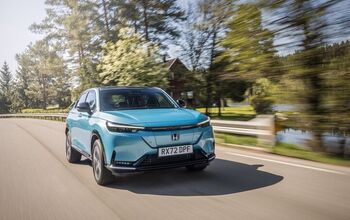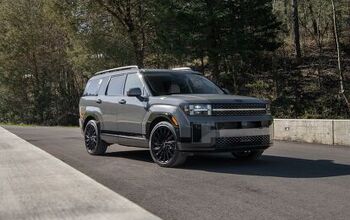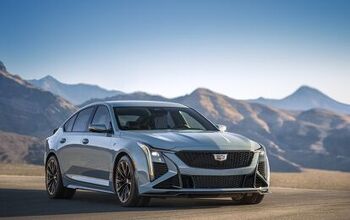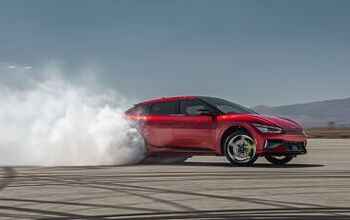Fisker Has Finally Filed Chapter 11 Bankruptcy

We’ve been hearing about Fisker’s downfall for months, but it finally appears that the automaker has reached the end of the road. Last night, the company officially filed for chapter 11 bankruptcy in Delaware, writing a post on its website confirming the development.
Fisker said it had experienced “market and macroeconomic headwinds that have impacted our ability to operate efficiently.” The company is looking to liquidate its assets, which could net between $500 million and $1 billion.
Though this is a significant step toward Fisker disappearing completely, the company will preserve customer operations, likely including service and support of the Ocean EV. With thousands of SUVs in the wild, the company has to maintain some semblance of support, though it’s unclear for how long it will be able to manage the reduced operational level.
It’s easy to poke fun at founder Henrik Fisker for his second failed automotive effort, but losing what could have been a compelling line of EVs is also a shame. Beyond the Ocean, Fisker had at least three other models in development, including the smaller Pear crossover, the Alaska truck, and a supercar.
Fisker’s downfall is a reminder that it’s unreasonably difficult to get a new automaker off the ground, and it highlights how lucky companies like Rivian and Lucid have been to break through the initial hardships and produce customer-ready vehicles.
[Images: Fisker]
Become a TTAC insider. Get the latest news, features, TTAC takes, and everything else that gets to the truth about cars first by subscribing to our newsletter.

Chris grew up in, under, and around cars, but took the long way around to becoming an automotive writer. After a career in technology consulting and a trip through business school, Chris began writing about the automotive industry as a way to reconnect with his passion and get behind the wheel of a new car every week. He focuses on taking complex industry stories and making them digestible by any reader. Just don’t expect him to stay away from high-mileage Porsches.
More by Chris Teague
Latest Car Reviews
Read moreLatest Product Reviews
Read moreRecent Comments
- Calrson Fan Vehicle that I bought new that I have owned the longest & w/most miles is my current 2007 Chevy Tahoe. 211K miles, lots of them towing a load. That's about all it's been used for in the last 8 years since I got my Volt. I'd like to keep it for 20 years just because but the tin worm (MN salty winters) is really starting to take its toll on it. Will most likely replace in the next year or so.
- Thehyundaigarage 2003 Tiburon with the 2.0 Beta2, non cvvt engine. Bought new to commute 3 hours each day and drove it for almost 6 and a half years until it reached almost 470,000km. Pads, rotors, tires, oil changes and multiple timing belt replacements. Warranty claim for a sunroof motor and second gear synchro. Got rear ended and written off, or I would have kept driving it. That was back before the days of direct injection when they were genuinely reliable cars.
- Slavuta They say - 2 things that will kill a car - time and miles. Well. What about cycles? Nothing kills a car like heating/cooling cycles, especially when seasonal temperature changes have high amplitude
- John 2000 Honda accord, bought new, 11 years, 160k miles. Sold rather than replace the clutch (first clutch replacement). 1985 BMW 524Td, bought at ~230k miles, odo failed at 288k miles and drove it 2 more years (turbo seal failed, sprayed oil all over engine compartment and too lazy to fix. Bought for 3k and sold it for 2k 8 years later barely running)
- Her65763625 Stellantis's main problem may lie in the thought that Tavares thinks that the Chrysler/Dodge/Jeep/Ram product lines are not 'in sync' with what a "proper" modern automotive company should be building in the 21st century. Back when he was still alive, Fiat Chrysler CEO Sergio Marchionne recognized that the CDJ products were successful, and he understood the American market, to the point that the Chrysler side of the company then was outperforming the Fiat side in many markets.



































Comments
Join the conversation
Good. Now they can go back to making axes 😁
Geeze, Anal sure likes to spread his drivel
A huge problem was Fisher and his wife - who overspent when they were flush with cash and repeatedly did things ad hoc and didn't listen to their employees (who had more experience when it came to auto manufacturing, engineering, etc).